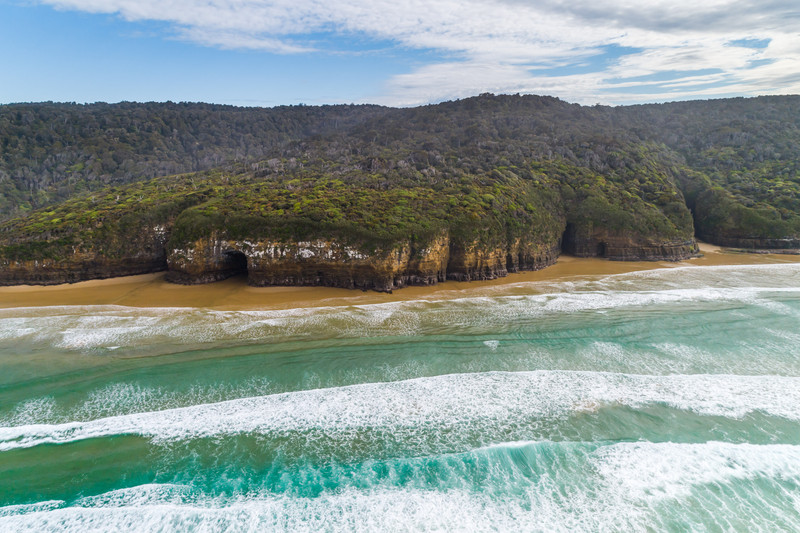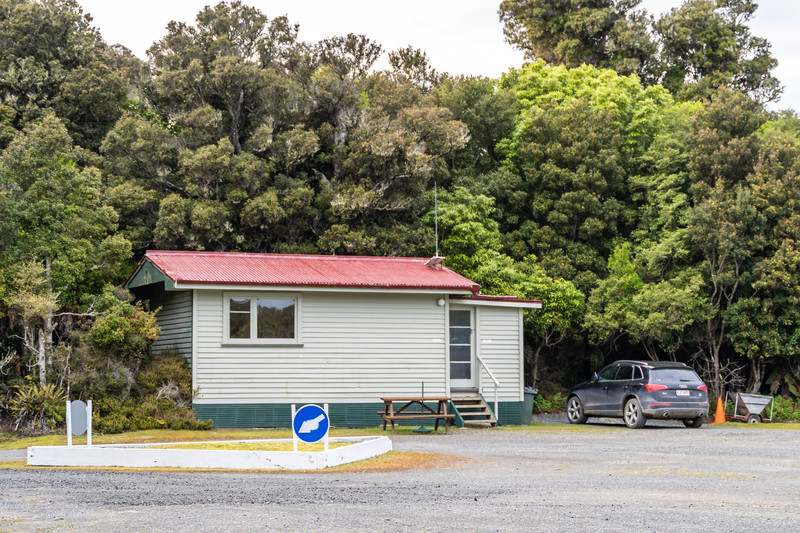Cathedral Caves & RBI2 Round 2
Thanks to Unifone, the Cathedral Caves in the Catlins can now offer the option of EFTPOS payments to their visitors. Staff also now have a phone line and wireless internet access. Making it a lot easier to keep tourists informed about tide times and any cave closures on the Cathedral Caves website. Working in conjunction with the Tautuku Block X Section 3C Trust, Cathedral Caves and Unifone have made wireless internet a reality for this part of the South Island.
The Cathedral Caves in the Catlins is one of the thirty longest sea caves in the world, located on Waipati Beach, south of Papatowai. The Catlins is a remote area of New Zealand, to this day, in 2020, the area only has about 1200 permanent residents, predominantly at Owaka. Tourist numbers are far above that, with over 70,000 visitors currently recorded each year visiting Nugget Point and Cathedral Caves experiencing over 10,000 visitors a year.
The area can be difficult for services and infrastructure with large areas of pristine protected dense native bush, often extreme weather conditions, and a landscape that, while incredibly beautiful, is logistically challenging.
Cathedral Caves is governed by a Māori land trust; Tautuku Block X Section 3C Trust, which was set up in 1996. Kate, who is part of the Tautuku X 3C Trust, got in touch with Unifone to see how they could help establish internet access and a reliable phone set-up for the Cathedral Caves.
Kate says of the project, “It’s been absolutely amazing because it means if there is any kind of safety issue, staff can react quickly and easily on the spot.”
The caves have short opening periods that can close at short notice due to unpredictable tides, weather conditions, and daylight hours (which change with cloud cover and conditions). It’s critical for staff at the Cathedral Caves to be easily able to update the website with open and close notices, make phone calls (particularly in emergencies), and to be able to offer tourists EFTPOS payments.
Talking to Kate, it soon becomes apparent that she cares about the staff working on-the-ground to support access to the Cathedral Caves. She says, “The phone line has been just amazing. Now they can ring someone up if they have any questions and staff can ring home if they need to. It’s nice that they can now check-in with family. It’s made such a huge difference.”
The Cathedral Caves wireless is not a normal set-up. The receiver is very tall to extend well above the dense native bush and the site is charged by solar panels as there’s no power to the remote site.
Kate says, “The overall process with Unifone has been very easy and it went really smoothly. Everything was delivered on time. We virtually discussed what we wanted and what we might require in the future, and they came to the party.”
The trust contributed to set-up and materials costs, while Unifone met most of the costs of putting in the solar set-up. Unifone supply the ongoing internet free-of-charge and so many minutes of local phone calls each month, as a way of giving back to the local tangata whenua.
Now tourists can easily pay with EFTPOS to visit the caves (which helps with maintenance and staffing costs), staff have a reliable phone service, and they can easily hop online and update the website – notifying potential visitors of any critical closures.
Unifone, with the help of funding from the government, has been able to put internet infrastructure into the Catlins area from Pounawea right down the coastline. With thanks to local farmers, the Tautuku X 3C Trust, and locals, this area now has access to wireless broadband and a reliable phone service.
Getting internet to the Catlins has been a local effort. Unifone used the services of a local civil works contractor to set-up the wireless broadband repeaters, as a way of supporting the local economy. The new network utilises private nearby farmland for infrastructure, with local businesses like the Whistling Frog Café now able to offer visitors internet access.
Increasing the Catlins Network is part of Round 2 of the government rollout. RBI2 Round 2 involves increasing the internet coverage in the Catlins and Clutha district, Cromwell, and Central Otago from Alexandra to Lauder and Cromwell. It also involves enhancing the internet coverage in the rural areas around Dunedin City and North Otago.
Getting internet access and a reliable phone service to this part of Otago has been a challenge, but it’s been incredibly rewarding, and as tourist numbers in the area look to continue to increase, locals and tourists alike will benefit from the generosity hard work that the local community have put into supporting the infrastructure in the area.



